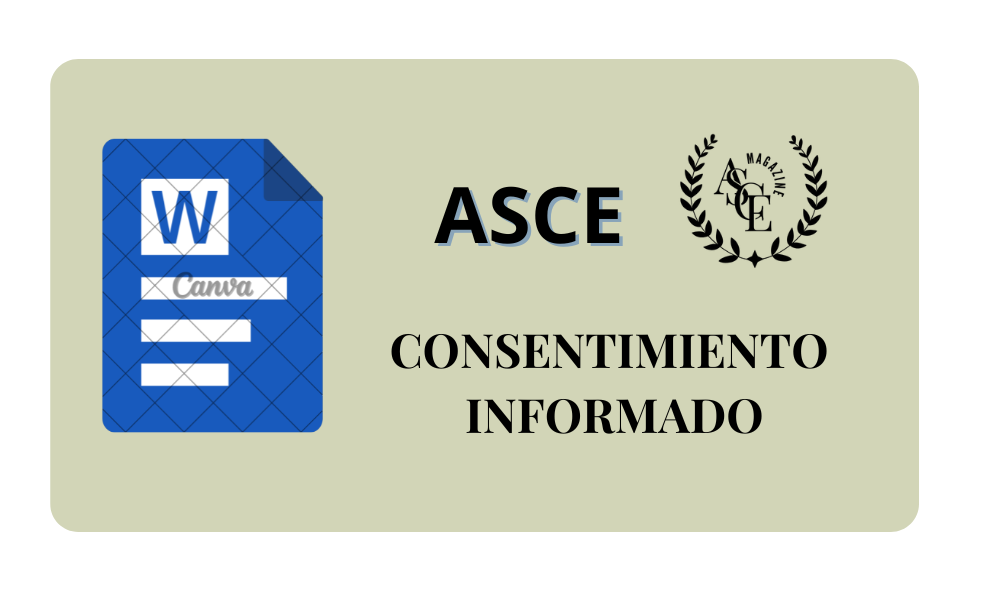Eficacia de las intervenciones tecnológicas en la mejora de la motivación, el engagement y el rendimiento académico en estudiantes de básica superior: Una revisión sistemática
DOI:
https://doi.org/10.70577/ASCE/1025.1043/2025Palabras clave:
Tecnología Educativa, Motivación del Alumno, Rendimiento Académico, Educación Secundaria, Innovación Pedagógica, Aprendizaje Activo.Resumen
La integración de tecnologías digitales en los procesos educativos ha cobrado relevancia por su potencial para transformar el aprendizaje, especialmente en estudiantes de básica superior. A pesar de su creciente implementación, persiste la incertidumbre sobre la efectividad real de estas herramientas en la mejora de la motivación, el engagement y el rendimiento académico. Los estudios previos muestran resultados mixtos: mientras algunas intervenciones tecnológicas elevan el interés y la participación estudiantil, otras no logran traducirse en mejoras significativas del desempeño académico. Frente a este panorama, el presente estudio tuvo como objetivo analizar la eficacia de las intervenciones tecnológicas en el fortalecimiento de la motivación, el engagement y el rendimiento académico en estudiantes de básica superior, a través de una revisión sistemática de literatura científica reciente, siguiendo el protocolo PRISMA. Se incluyeron 16 estudios empíricos publicados entre 2020 y 2025, los cuales evidencian que las herramientas más empleadas son la gamificación, la realidad aumentada, los dashboards de aprendizaje y los sistemas de retroalimentación automatizada. Los resultados indican mejoras consistentes en la motivación y participación del alumnado, principalmente cuando estas tecnologías se integran con metodologías activas y retroalimentación inmediata. Sin embargo, el impacto en el rendimiento académico varía en función del contexto socioeducativo, el diseño metodológico y la mediación docente. Se concluye que las tecnologías educativas poseen un alto potencial didáctico, pero su efectividad depende de una planificación intencionada y de factores complementarios que deben ser considerados en futuras investigaciones.
Descargas
Citas
Abd, M., Norman, M., Zaini, M., Zulnaidi, H., & Nasir, M. (2025). Technological Empowerment in Education: A Systematic Review. SAGE Open, 1–15. https://doi.org/10.1177/21582440251325077 DOI: https://doi.org/10.1177/21582440251325077
Akpen, C. A., & Atobatele, S. (2024). Impact of online learning on student's performance and engagement: a systematic review. Discov Educ , 3, 205. https://doi.org/10.1007/s44217-024-00253-0 DOI: https://doi.org/10.1007/s44217-024-00253-0
Alé, J., & Arancibia. (2025). Emerging Technology-Based Motivational Strategies: A Systematic Review with Meta-Analysis. Educ. Sci., 15(2). https://doi.org/10.3390/educsci15020197
Alé, J., & Arancibia, M. (2024). Emerging Technology-Based Motivational Strategies: A Systematic Review with Meta-Analysis. Technology-Mediated Active Learning Methods), 15(2), 197. https://doi.org/10.3390/educsci15020197 DOI: https://doi.org/10.3390/educsci15020197
Amores, A., Burgos, D., & Branch, J. (2022). Influence of motivation and academic performance in the use of Augmented Reality in education. A systematic review. Frontiers Psychology, 13. https://doi.org/10.3389/fpsyg.2022.1011409 DOI: https://doi.org/10.3389/fpsyg.2022.1011409
Behera, D. (2023). Technological Interventions in Education: An Empirical Review of Their Impact on Learning Outcomes. ALSYSTECH Journal of Education Technology , 1(1), 62-77. https://doi.org/10.58578/alsystech.v1i1.1674 DOI: https://doi.org/10.58578/alsystech.v1i1.1674
Bi, J., Izadpanah, S., & Mohammadi, Z. (2024). Investigating the impact of technology-based education on academic motivation, academic perseverance, and academic self-efficacy in english language learning skills. Educ Inf Technol , 29, 20523–20545. https://doi.org/10.1007/s10639-024-12712-0 DOI: https://doi.org/10.1007/s10639-024-12712-0
Chen, J., & Liang, M. (2022). Play hard, study hard? The influence of gamification on students’ study engagement. Frontiers, 13. https://doi.org/10.3389/fpsyg.2022.994700 DOI: https://doi.org/10.3389/fpsyg.2022.994700
Gómez, G. R., & Marín, J. (2020). La trascendencia de la Realidad Aumentada en la motivación estudiantil. Una revisión sistemática y meta-análisis. Revista de Educación Alteridad., 15(1). https://doi.org/10.17163/alt.v15n1.2020.03 DOI: https://doi.org/10.17163/alt.v15n1.2020.03
Imran, H. (2022). An Empirical Investigation of the Different Levels of Gamification in an Introductory Programming Course. Journal of Education Computing Research, 64(1). https://doi.org/10.1177/07356331221144074 DOI: https://doi.org/10.1177/07356331221144074
Kalissa, R., Misiejuk, K., López, S., Khalil, M., & Saqr, M. (2023). Have Learning Analytics Dashboards Lived Up to the Hype? A Systematic Review of Impact on Students' Achievement, Motivation, Participation and Attitude. Human-Computer Interaction, 23(12). https://doi.org/10.48550/arXiv.2312.15042
Lampropoulos, G., & Kinshuk, G. (2024). Virtual reality and gamification in education: a systematic review. Education Tech Research Dev(72), 1691–1785. https://doi.org/10.1007/s11423-024-10351-3 DOI: https://doi.org/10.1007/s11423-024-10351-3
Lampropoulos, G., Keramopoulos, E., Diamantaras, K., & Evangelidis, G. (2022). Augmented Reality and Gamification in Education: A Systematic Literature Review of Research, Applications, and Empirical Studies. Applied Sciences, 12(13), 6809. https://doi.org/10.3390/app12136809 DOI: https://doi.org/10.3390/app12136809
Lee, J., & Baek, M. (2023). Effects of Gamification on Students’ English Language Proficiency: A Meta-Analysis on Research in South Korea. Sustainability , 15(14), 11325. https://doi.org/10.3390/su151411325 DOI: https://doi.org/10.3390/su151411325
Li, G., Luo, H., Chen, D., Wang, P., Yin, X., & Zhang, J. (2025). Augmented Reality in Higher Education: A Systematic Review and Meta-Analysis of the Literature from 2000 to 2023. Edicational Science, 15(6), 678. https://doi.org/10.3390/educsci15060678 DOI: https://doi.org/10.3390/educsci15060678
Li, L., Hew, K., & Du, J. (2024). Gamification enhances student intrinsic motivation, perceptions of autonomy and relatedness, but minimal impact on competency: a meta-analysis and systematic review. Educational technology research and development, 72, 765–796. https://doi.org/10.1007/s11423-023-10337-7 DOI: https://doi.org/10.1007/s11423-023-10337-7
Marrahi, V., & Belda, J. (2024). Assessing the effect of Augmented Reality on English language learning and student motivation in secondary education. Frontiers, 9. https://doi.org/10.3389/feduc.2024.1359692 DOI: https://doi.org/10.3389/feduc.2024.1359692
Nkomo, L., Daniel, B., & Butson, R. (2021). Synthesis of student engagement with digital technologies: a systematic review of the literature. International Journal of Educational Technology in Higher Education , 18(34). https://doi.org/10.1186/s41239-021-00270-1
Ramírez, J., Vargas, A., & Boude, O. (2024). Impact of gamification on school engagement: a systematic review. Frontiers Education, 9. https://doi.org/10.3389/feduc.2024.1466926 DOI: https://doi.org/10.3389/feduc.2024.1466926
Suraworachet, w., Zhou, Q., & Cukurova, M. (2022). Impact of combining human and analytics feedback on students' engagement with, and performance in, reflective writing tasks. Computers and Society , 1, 28. https://doi.org/10.48550/arXiv.2211.08222 DOI: https://doi.org/10.1186/s41239-022-00368-0
Vieriu, A., & Petrea, G. (2025). The Impact of Artificial Intelligence (AI) on Students’ Academic Development. Educ. Sci., 15(3), 343. https://doi.org/10.3390/educsci15030343 DOI: https://doi.org/10.3390/educsci15030343
Descargas
Publicado
Cómo citar
Número
Sección
Licencia
Derechos de autor 2025 Alexandra Roxana Muñoz Pazmiño , Christian Raúl López Medina , Marco Vinicio Oñate Guevara

Esta obra está bajo una licencia internacional Creative Commons Atribución-NoComercial-SinDerivadas 4.0.
Eres libre de:
- Compartir : copiar y redistribuir el material en cualquier medio o formato
- Adaptar : remezclar, transformar y desarrollar el material
- El licenciante no puede revocar estas libertades siempre y cuando usted cumpla con los términos de la licencia.
En los siguientes términos:
- Atribución : Debe otorgar el crédito correspondiente , proporcionar un enlace a la licencia e indicar si se realizaron cambios . Puede hacerlo de cualquier manera razonable, pero no de ninguna manera que sugiera que el licenciante lo respalda a usted o a su uso.
- No comercial : no puede utilizar el material con fines comerciales .
- CompartirIgual — Si remezcla, transforma o construye sobre el material, debe distribuir sus contribuciones bajo la misma licencia que el original.
- Sin restricciones adicionales : no puede aplicar términos legales ni medidas tecnológicas que restrinjan legalmente a otros hacer algo que la licencia permite.
























